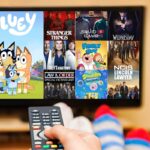The Rise of “The Answer”, Allen Iverson

Allen Ezail Iverson was born on June 7, 1975, in Hampton, Virgini,a to a single mother, Ann Iverson. A lightning-fast, uncompromising baller, he is a former American basketball player. High school at Bethel, then a scholarship to Georgetown, where he caught fire. In 1996, he was drafted No. 1 overall by the Philadelphia 76ers.
Right away, he made a noise. He was Rookie of the Year in 1997, and over the years, he became an 11-time All-Star, a scoring champ, and a showman. In 2001, Iverson captured the NBA MVP, leading Philly on that unforgettable run to the Finals.
But his path wasn’t smooth. There were clashes with coaches, injuries, absences, and that “practice” press conference, a moment forever replayed in sports lore, when he famously replied, “We’re talking about practice? … Not the game.” That became shorthand for frustration and misinterpretation.
He bounced back later, where he played for the Denver Nuggets, Detroit Pistons, a stint in Turkey with Beşiktaş, and back to Philadelphia for a brief return. He officially hung up his sneakers in 2011. He earned the title of being the fifth greatest NBA shooting guard of all time by ESPN in 2008.
He won’t just be remembered as a scorer; his style changed the game. Cornrows, tattoos, swagger, merging hip-hop with hoops, Iverson gave voice to a generation.
The Memoir & Documentary
Misunderstood: telling his side
In October 2025, Iverson dropped his memoir Misunderstood.
With that title, he’s signaling: people think they know, but they don’t. In interviews, he’s said things like:
“With this book, you’re hearing it straight from the horse’s mouth … you think you know, but you have no idea.”
When he was asked about what hurt him the most, he replied, “Calling me a thug, when I know I’m not. judging me off a look. I think that was one of the toughest things I had to deal with.”
He opens up about early life, growing up poor, the controversial 1993 incident, and how labels — “thug,” “hot-head” — haunted him.
He also talked about sobriety, saying, “One of my best decisions that I’ve ever made in my life was [to] stop drinking.” Quitting alcohol has been a big turning point, and he explained that he’s been six months sober.
In a candid moment:
“I’ve made a lot of mistakes, but I’ve learned from every one of them. This isn’t about basketball anymore — it’s about becoming a better man, father, and friend.”
During the memoir launch, Iverson revealed he and his ex-wife, Tawanna Turner, have reunited after their 2013 divorce. He said that separation was a wake-up call.
Allen Iv3rson — the Amazon docuseries
Alongside the book, there’s a documentary: Allen Iverson. A three-part series, produced by One9, is set to stream on Prime Video.
It premiered at the Philadelphia Film Festival before going live on Prime. The doc digs deep not just into the on-court highlights, but inner life, relationships, sacrifices, and controversies. One9 says they tried to capture his “raw, relentless, authentic heart.”
We’ll see moments that might shift public memory. And you know, as readers, I love that kind of redemption or reclamation arc.
This isn’t his first documentary. There is No Crossover: The Trial of Allen Iverson (2010) that explored the 1993 high school incident, the conviction, the racial tension, and how his community was torn apart.
The Money Mistakes and Bounce Back
Iverson’s financial story is wild.
He earned big. From NBA salaries alone, about $154.77 million (not counting endorsements). Some sources say with endorsements, he was over $200 million.
But, he spent like there was no tomorrow. Black-tie dinners, jewelry, cars, strip clubs. Reports say he’d drop $30,000–$40,000 on a single night out. Luxury cars such as Lamborghini, Mercedes-Maybach, Bentley were stacked up: He gave away cars. He looked after friends and extended family. Being someone who grew up in poverty, he has been catering to the financial struggles of the family from a young age. He once gifted a Bentley to teammate Larry Hughes just because. He often traveled with large entourages, lost money gambling, and was trusting to a fault.
He also launched a clothing line, where he lost around $40 million. He told Afrotech, “I didn’t have a plan. I was 21 years old. I was on the fly. I never had money before in my life.”
He eventually declared in court: “I can’t afford a cheeseburger.” It was shocking.
By 2012, he filed for bankruptcy.
But one lifeline, his Reebok lifetime endorsement deal. It pays him ~$800,000 per year, and includes a $32 million trust fund that he’ll access at 55 (in 2030).
So today, he’s not destitute. The Reebok deal, plus licensing, his memoir, and the docuseries, are steps in his financial rebirth.
In interviews, Iverson acknowledges his mistakes. He says he “made a lot of mistakes, but I learned from every one of them.”
What’s New In 2025
- He’s six months sober, talking openly about it, saying it’s one of the best decisions he made.
- His memoir, Misunderstood, has finally dropped, and it’s one that contains the real man behind the fame.
- The Allen Iv3rson docuseries is now out (or just about to), streaming on Prime Video. It’s being hailed as raw, emotional, and honest.
- He and Tawanna Turner, his ex-wife, are back together — a twist he frames as tied to his personal growth.
There is more from Allen Iverson to inspire fans, players, and the world as more projects are brimming on the horizon.
The very things the public judged him for, his defiance, his style, his uncompromising way, are now part of what makes Allen magnetic. He’s trying to reclaim his narrative. To show the person behind the persona. To say: I’m not just a legend; I’m human, flawed, evolving.




